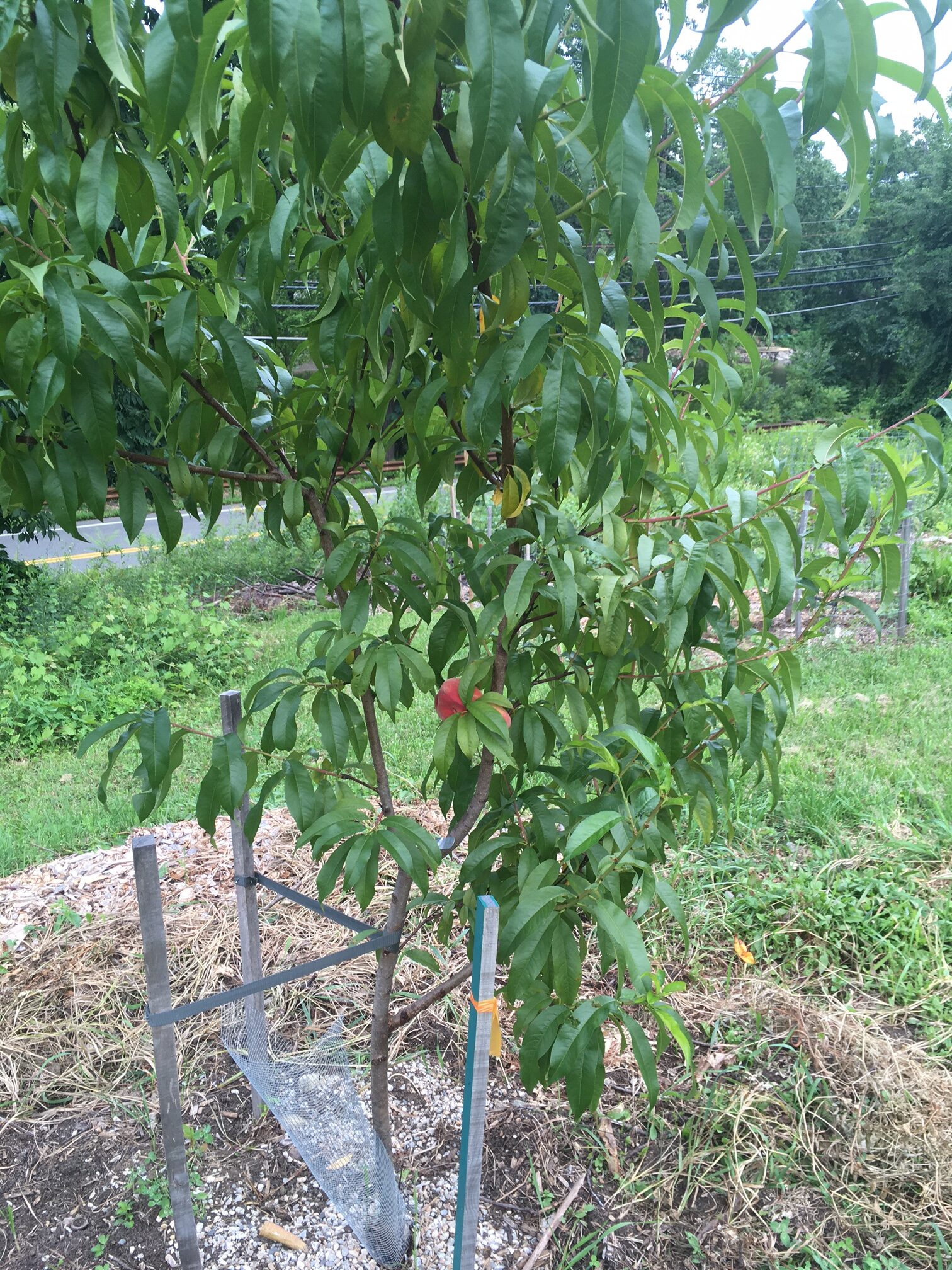The Shelburne Falls Community Orchard neighbor-to-neighbor project grew out of a desire to share abundance, and to make growing space accessible to all. Members hope that efforts will ripple out into the world to intersect with the thousands of similar projects sprouting up across the globe.
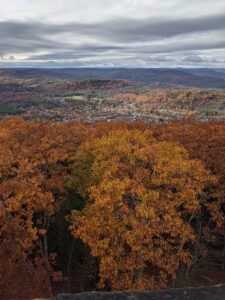 Watching Paul Hawken introduce his book “Blessed Unrest” is an antidote for anyone who feels alone or isolated in this work, click here.
Watching Paul Hawken introduce his book “Blessed Unrest” is an antidote for anyone who feels alone or isolated in this work, click here.
There are countless examples of people around the world choosing to live lighter, and to become more resilient and self-reliant. We have been deeply inspired by this short video about the transition of life of Meg Ulman, Patrick Jones, and their youngest son, Woody, who live on just a 1/4-acre piece of land in a small Australian town who recognized permaculture as “a way back to have a connection with all things” that make living a radically simple life possible, and can reconnect a person to being “a creature of place.” By self-questioning everything about their own use and consumption of food and household items, they have built rich community and restructured their lives to heal themselves while healing the earth. By growing food and bartering for their needs, they have avoided a supermarket for 9 years!!! Link here.
The idea of beginning with a community orchard emphasizing diversity of tree species, planted in triads, with multiple layers of mutually beneficial plantings, and wise insight regarding the limits of organic monoculture, came from Stefan Sobkowiak at Miracle Farm in southern Quebec. Link here.
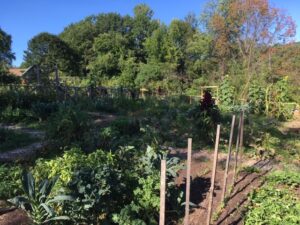 As we delved deeper into learning about the world of food forests, we discovered Robert and Robin Guyton, and the 23-year-old food forest they have developed in New Zealand. Their home is surrounded by a magical world of abundance and species vibrancy that they created over two decades. Link here.
As we delved deeper into learning about the world of food forests, we discovered Robert and Robin Guyton, and the 23-year-old food forest they have developed in New Zealand. Their home is surrounded by a magical world of abundance and species vibrancy that they created over two decades. Link here.
We have attended workshops on food justice at Soul Fire Farm, an Afro-Indigenous-centered community farm in New York State, to learn how to be a community ally committed to uprooting racism and seeding sovereignty in the food system. Their website provides resources to learn about injustice embedded in all aspects of our lives including our food system, and what ameliorative steps can be taken. Link here.
We also participated in the Food Solutions New England (21-day challenge to understand racism and injustice in the food system). Link here.
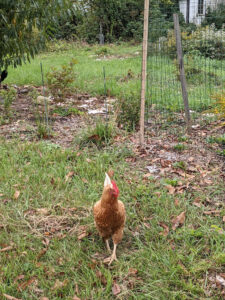 The Just Roots Community Farm in Greenfield MA also has an inspired website with pages dedicated to Equitable Food System Resources, ways to access SNAP and HIP benefits for healthy food on a low budget, and a “Recipes” page (if you just have one ingredient you picked in the food forest and aren’t sure how to use). Link here.
The Just Roots Community Farm in Greenfield MA also has an inspired website with pages dedicated to Equitable Food System Resources, ways to access SNAP and HIP benefits for healthy food on a low budget, and a “Recipes” page (if you just have one ingredient you picked in the food forest and aren’t sure how to use). Link here.
The Maine Heritage Orchard Tree Stewardship Program helps preserve old heirloom apple tree varieties of New England. The Shelburne Falls Orchard Project is proud to be growing one of the few Harman apple trees left, originally found in Buxton, Maine. Connect with the stewardship program if you’d like to plant an heirloom tree wherever you are, to always ensure that the oldest varieties are thriving and preserved in New England. Link here.
The “Plants for a Future” website is a comprehensive database with information about 7000+ plants including physical characteristic, care, habitats, medicinal/edible uses, cultivation, propagation, etc. Link here.
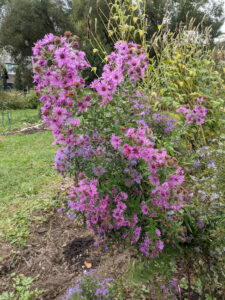 The Sowing Solutions Permaculture Design Course is an excellent in-person permaculture design education course which often visits the community orchard to lend a hand, to inspire and to be inspired. Link here.
The Sowing Solutions Permaculture Design Course is an excellent in-person permaculture design education course which often visits the community orchard to lend a hand, to inspire and to be inspired. Link here.
There are countless articles and websites honoring indigenous knowledge and wisdom on how best to live simply on the earth to create a holistic and regenerative partnership. For a small sampling of articles dedicated to sharing the wisdom and sophisticated methods of agriculture and land stewardship of native peoples, see:
- https://foodrevolution.org/blog/food-forests-lyla-june/
- https://www.science.org/news/2021/04/pacific-northwest-s-forest-gardens-were-deliberately-plantedindigenous-people
- https://www.smithsonianmag.com/smart-news/indigenous-peoples-british-columbia-tended-forestgardens-180977617/
More resource links will be added soon, so please check back again.
